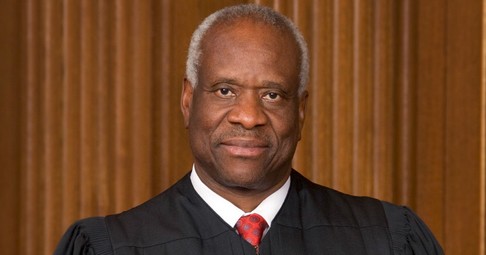Clarence Thomas Casts Doubt on the Constitutionality of Civil Forfeiture
Jason Snead | Daily Signal,
Thomas is correct that forfeiture laws have strayed far beyond their historically limited role.
This week, Supreme Court Justice Clarence Thomas signaled his belief that civil asset forfeiture laws have strayed too far from their narrow historical precedent and questioned whether “modern civil-forfeiture statutes can be squared with the Due Process Clause and our nation’s history.”
The news stems from a case, Lisa Olivia Leonard v. Texas, which–like so many forfeiture cases–began along the side of a road.

James Leonard, the petitioner’s son, was stopped for a traffic violation along what Thomas’s statement describes as a “known drug corridor.” Leonard’s vehicle was subjected to a search, which turned up a safe in the trunk.
Officers reported that Leonard and his passenger gave “conflicting stories” as to its contents, though Leonard noted it belonged to his mother, Lisa Leonard.
Police executed a search warranted, discovered $201,100 in cash and “a bill of sale for a Pennsylvania home” inside, and seized the funds as alleged drug proceeds.





